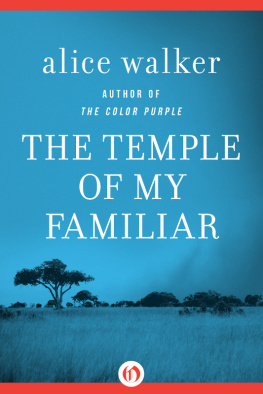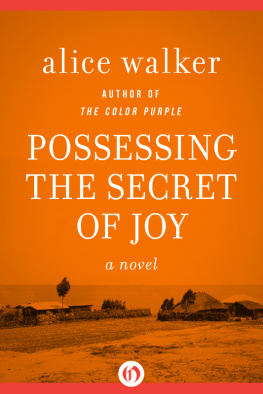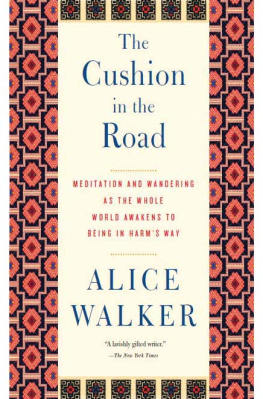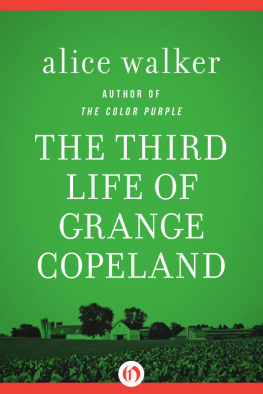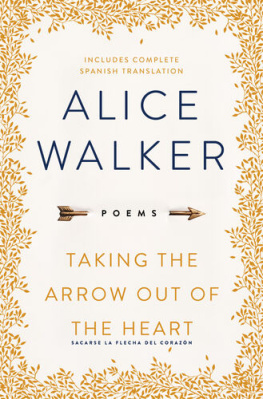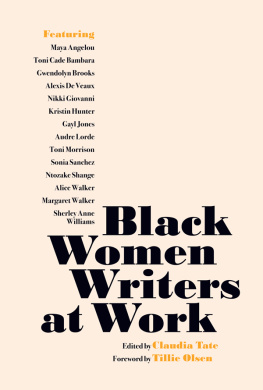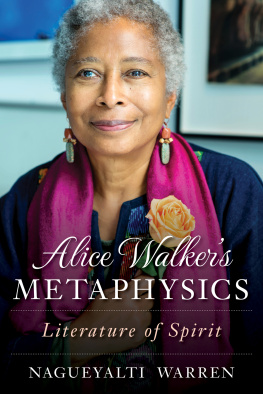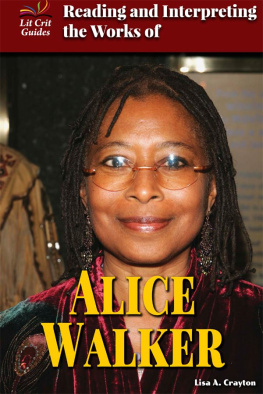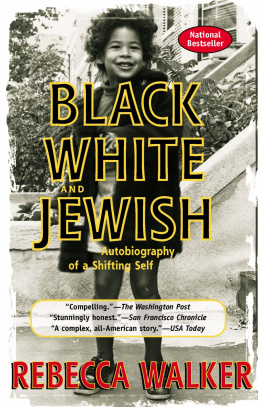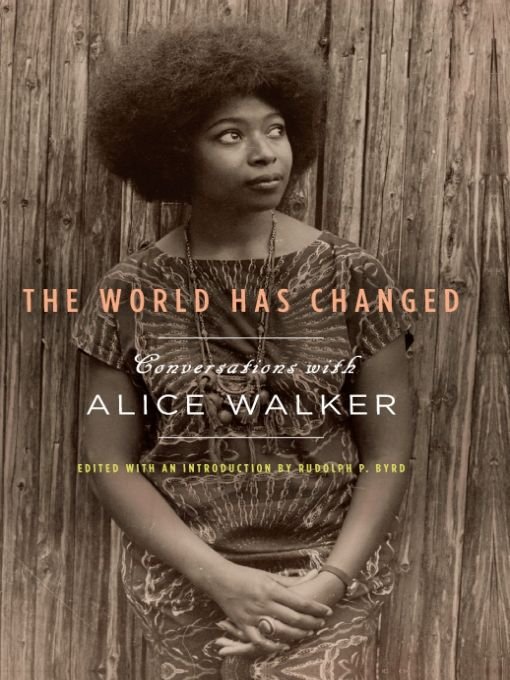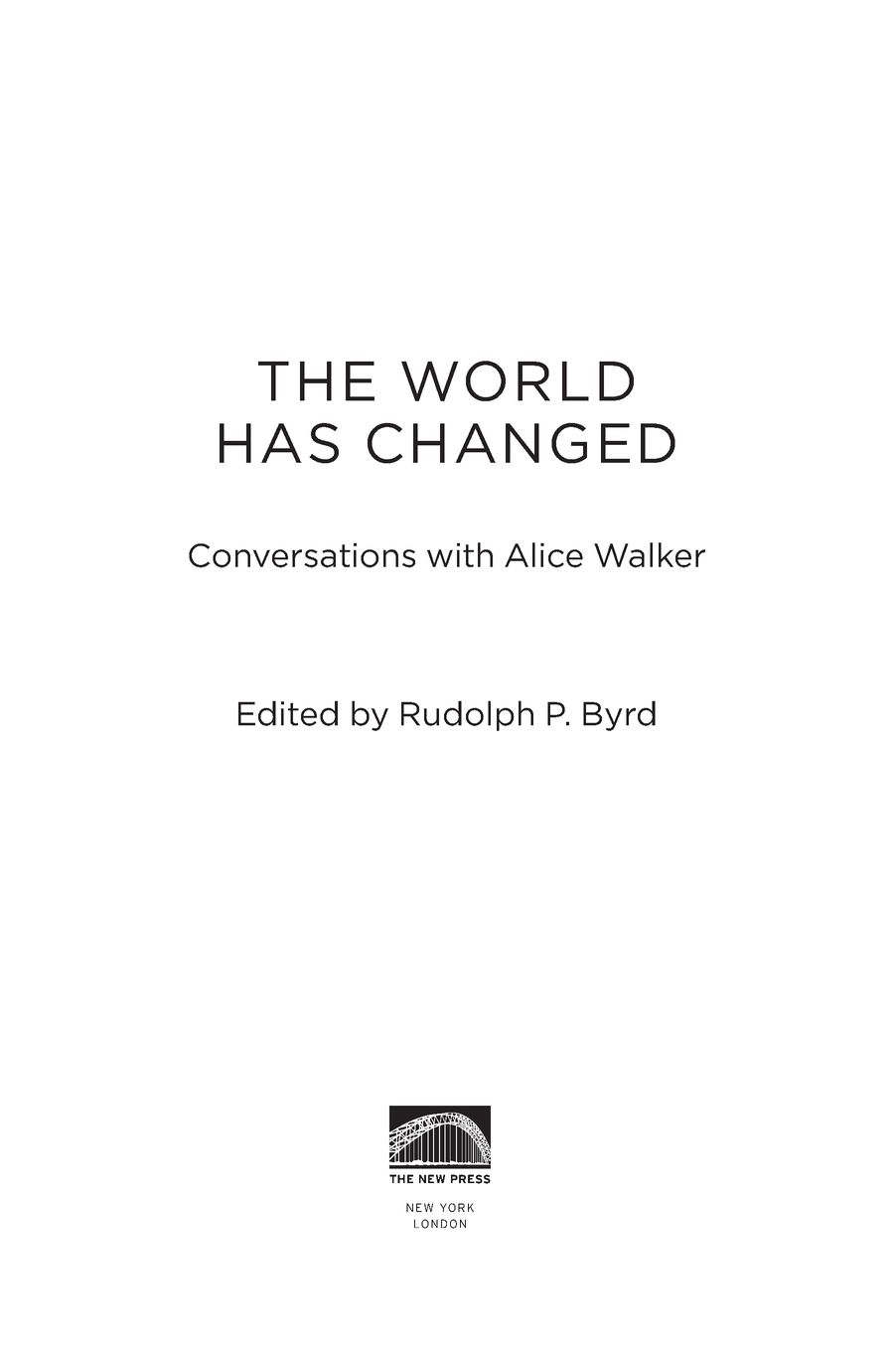Table of Contents
ALSO BY ALICE WALKER
Anything We Love Can Be Saved: A Writers Activism
By the Light of My Fathers Smile: A Novel
The Color Purple
In Search of Our Mothers Gardens: Womanist Prose
Now Is the Time to Open Your Heart
Possessing the Secret of Joy
The Temple of My Familiar
The Third Life of Grange Copeland
We Are the Ones We Have Been Waiting For
ACKNOWLEDGMENTS
I would like to express my gratitude to Alice Walker for the great privilege and pleasure of collaborating with her in bringing The World Has Changed: Conversations with Alice Walker to publication. From conception to publication, Ms. Walker was generous with her time and open to suggestions, such as they were, from this editor.
Emory University is privileged to serve as the custodian of the Alice Walker archive, which opened to the public in 2009. At Emory, we happily bear the privileges and responsibilities of custodianship of this national treasure. These privileges and responsibilities are shared by many across Emory University, in particular James W. Wagner, President; Earl Lewis, Provost and Vice President for Academic Affairs; and Rick Luce, Vice Provost for University Libraries.
The World Has Changed is the first of many books that will emerge from the Walker archive. In preparing this book for publication, I wish to thank my colleagues in the Manuscript, Archive, and Rare Book Library (MARBL) of the Robert W. Woodruff Library, in particular Randall Burkett, Teresa Burke, Naomi L. Nelson, Elizabeth Russey, and Julie Delliquanti, Director of the Schatten Gallery.
I would be remiss if I did not acknowledge the contributions of Michael Hall, doctoral student in the Graduate Institute in the Liberal Arts at Emory University, who served as my research assistant in the editing of this volume.
I wish to acknowledge the contributions and colleagueship of Beverly Guy Sheftall, Howard Zinn, Wendy Weil, Priyanka Jacob, and the very able Sarah Fan and Marc Favreau of The New Press.
I also wish to record grateful acknowledgment to those who have given permission to reprint the following conversations and interviews. Every effort has been made to contact all rights holders of reprinted material in The World Has Changed. If notified, the publisher of the book will be pleased to rectify an omission in future editions.
Chapter 1 is excerpted from Interviews with Black Writers, edited by John OBrien (New York: Liveright, 1973).
Chapter 2, excerpted from Black Women Writers at Work by Claudia Tate (1983), is reprinted with the permission of the Continuum International Publishing Group.
Chapter 3 is reprinted with the permission of the Animals and Society Institute (www.animalsandsociety.org), successor organization to The Animals Agenda magazine and its publisher, The Animal Rights Network, Inc., and also with the permission of Ellen Bring, activist, attorney, and educator.
Chapter 4 is reprinted with the permission of Claudia Dreifus, whose forthcoming book is Higher Education?, co-authored with Andrew Hacker.
Chapter 5 is reprinted with the permission of Paula Giddings, whose most recent book is Ida: A Sword Among Lions and who is the Elizabeth A. Woodson Professor of Afro-American Studies at Smith College.
Chapter 6, Giving Birth, Finding Form: Where Our Books Come From (1993), from Creative Conversations Series, is reprinted with the permission of Sounds True (www.soundstrue.com).
Chapter 7 is reprinted with the permission of Jody Hoy.
Chapter 8, My Life as Myself: A Conversation with Tami Simon (1995), is reprinted with the permission of Sounds True (www.soundstrue.com).
Chapter 9 is reprinted with the permission of Howard Zinn.
Chapter 10, 1996 by New Dimensions Radio/Media. More than 850 programs with other wisdom leaders are offered on the New Dimensions Web site (www.newdimensions.org).
Chapter 11, copyright Ms. magazine, 1998.
Chapter 12, On the Meaning of Suffering and the Mystery of Joy: Alice Walker and Pema Chdrn in Conversation (1998), is reprinted with the permission of Sounds True (www.soundstrue.com).
Chapter 13, from Southern Cultures, 2004 by the Center for the Study of the American South, is reprinted with the permission of University of North Carolina Press.
Chapter 14 is reprinted with the permission of LIVE from the NYPL/ Margo Jefferson.
Chapter 15 is an excerpt from a Democracy Now! conversation aired February 13, 2006, titled I Am a Renegade, an Outlaw, a PaganAuthor, Poet and Activist Alice Walker in Her Own Words.
Chapter 16, from The Fidel Castro Handbook, is reprinted with the permission of George Galloway.
The interview in chapter 17 was conducted by Marianne Schnall, a writer and interviewer, and originally appeared at the womens site and nonprofit organization Feminist.com (http://www.feminist.com). It is reprinted with the permission of Marianne Schnall.
Chapter 18 is reprinted with the permission of Shambhala Sun, 2006.
CHRONOLOGY
| 1944 | Walker is born at home on February 9 in Putnam County, Georgia, to Willie Lee Walker and Minnie Lou (Tallulah) Grant Walker, both sharecroppers. The last child of eight children, she is given the name of Alice Malsenior Walker. The Walkers pay the midwife three dollars for her services. |
| 1948 | At four years of age Walker enters the first grade of East Putnam Consolidated, a primary and middle school established in 1948 through the leadership of Willie Lee Walker, her father. |
| 1952 | In a game of cowboys and Indians with her brothers Bobby and Curtis, Walker is accidentally shot in her right eye by Curtis with a BB gun. She loses the sight in her eye, over which disfiguring scar tissue forms. |
| 1957 | Walker enrolls in Butler-Baker High School, the only school open to African Americans in Eatonton, the county seat of Putnam County, Georgia. |
| 1958 | With the support of her brother Bill, the scar tissue is removed from Walkers right eye by Dr. Morriss M. Henry of Bostons Massachusetts General Hospital. |
| 1961 | Walker graduates from Butler-Baker High School as valedictorian of her class and enrolls at Spelman College. She de parts from Eatonton on a segregated Greyhound bus with three magic gifts from her mother, Minnie Lou Grant Walker: a typewriter, a sewing machine, and a suitcase. While |
| at Spelman, Walker becomes involved in the civil rights movement by participating in events sponsored by the Student Nonviolent Coordinating Committee and other civil rights organizations. She becomes a student of the historian Howard Zinn, a member of the faculty at Spelman College. |
| 1962 | Walker travels abroad for the first time as a delegate to the World Festival of Youth and Students in Helsinki, Finland. Coretta Scott King is one of her sponsors. |
| 1963 | Walker attends the March on Washington for Jobs and Freedom. She withdraws from Spelman College in December. |
| 1964 | In January Walker transfers to Sarah Lawrence College with the assistance of Staughton Lynd, a faculty member in the department of history at Spelman College. She continues to be active in the civil rights movement through voter registration campaigns. Walker travels to Kenya under the auspices of the Experiment in International Living. While at Sarah Lawrence, she becomes a student of the philosopher Helen Lynd and the poets Jane Cooper and Muriel Rukeyser. |


